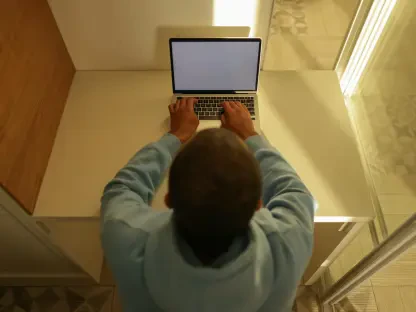Imagine a world where elderly individuals in nursing homes no longer suffer in silence because they are unable to articulate their pain. This scenario is becoming a reality thanks to PainChek, an innovative facial recognition technology deployed in residential and nursing homes across Bedfordshire, Luton, and Milton Keynes. PainChek is making waves in elderly care by enhancing pain management and reducing the need for medication. The mobile app assesses pain levels in those who cannot express their discomfort verbally due to illness or disability by analyzing their facial expressions.
A recent pilot project in Central Bedfordshire has proven the efficacy of PainChek, showing significant benefits for vulnerable adults. Initial data from this pilot, which involved seven care homes, is quite promising. During the course of the pilot, 39 users completed 152 assessments, identifying pain in 124 instances. In the first two months alone, there was a 55% reduction in pain medication usage in four of the homes, suggesting that more accurate and consistent pain assessments allow for better-informed care decisions. These results have generated excitement among healthcare professionals about the potential of PainChek to transform the landscape of elderly care.
Benefits and Real-World Impact
Key figures in the local healthcare system have been vocal about the positive impact of PainChek. Patricia Coker, the head of the Digitising Social Care (DiSC) program, has emphasized the substantial improvements in residents’ quality of life and overall care experience. Similarly, Clare Steward, Director of the Digitising Social Care Program, has pointed out the revolutionary aspect of this tool in facilitating a more humane and patient-centered approach to pain management. Louise Norris, the deputy home manager at Oak Manor Care Home, also praised the tool’s efficiency in gathering crucial pain-related information, which helps coordinate better care with the residents’ general practitioners.
Due to the success of the initial pilot, the project is being extended to encompass an additional 1,000 residents within the Bedfordshire, Luton, and Milton Keynes Integrated Care System (BLMK ICS). Over the next 12 months, a detailed evaluation will be carried out to assess the feasibility of further deployment. This initiative reflects a broader trend of integrating digital health technology into patient care, aiming to emphasize personalized care in nursing homes and beyond. If sustained success is demonstrated, the potential for PainChek’s broader application in other regions and care systems could be groundbreaking.
Future Directions and Broader Implications
The success of PainChek in improving pain management and reducing reliance on medication has significant implications for the future of elderly care. Expanding this technology could facilitate a more humane, patient-centered approach to care, not only within the Bedfordshire, Luton, and Milton Keynes Integrated Care System but also potentially across other regions and care systems. As healthcare professionals continue to observe the benefits and gather data, the integration of such digital technology into routine practice may mark the beginning of a new era in elderly care, characterized by personalized and precise pain management.









